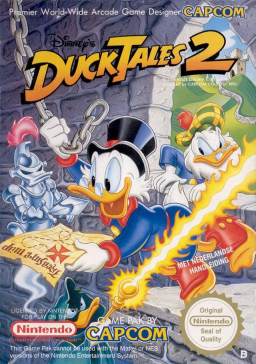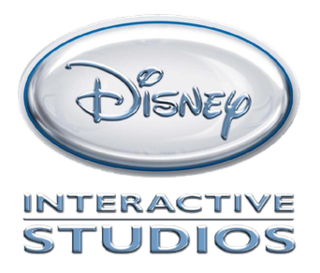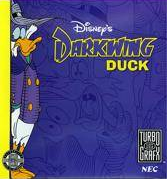
The Super Nintendo Entertainment System, commonly shortened to Super Nintendo, Super NES or SNES, is a 16-bit home video game console developed by Nintendo that was released in 1990 in Japan and South Korea, 1991 in North America, 1992 in Europe and Oceania and 1993 in South America. In Japan, it is called the Super Famicom (SFC). In South Korea, it is called the Super Comboy and was distributed by Hyundai Electronics. The system was released in Brazil on August 30, 1993, by Playtronic. Although each version is essentially the same, several forms of regional lockout prevent cartridges for one version from being used in other versions.

A platformer is a sub-genre of action video games in which the core objective is to move the player character between points in an environment. Platform games are characterized by levels with uneven terrain and suspended platforms of varying height that require jumping and climbing to traverse. Other acrobatic maneuvers may factor into the gameplay, such as swinging from vines or grappling hooks, jumping off walls, gliding through the air, or bouncing from springboards or trampolines.

Darkwing Duck is an American animated superhero comedy television series produced by Disney Television Animation that first ran from 1991 to 1992 on both the syndicated programming block The Disney Afternoon and Saturday mornings on ABC. A total of ninety-one episodes were aired. It features the adventures of Darkwing Duck, who is the superheroic alter-ego of ordinary suburban duck Drake Mallard.
Mega Man is a Japanese science fiction video game franchise created by Capcom, starring a character named "Mega Man". The original game was released for the Nintendo Entertainment System in 1987, and spawned a franchise that expanded to over 50 games on multiple systems. As of October 2023, the series has sold 41 million units worldwide.

DuckTales is an American animated television series produced by Walt Disney Television Animation. It originally premiered on syndication on September 18, 1987, and ran for a total of 100 episodes over four seasons, with its final episode airing on November 28, 1990. Based upon Uncle Scrooge and other Duck universe comic books created by Carl Barks, the show follows Scrooge McDuck, his three grandnephews Huey, Dewey, and Louie, and close friends of the group, on various adventures, most of which either involve seeking out treasure or thwarting the efforts of villains seeking to steal Scrooge's fortune or his Number One Dime.

Chip 'n Dale: Rescue Rangers is an American animated adventure comedy television series produced by Walt Disney Television Animation. Created by Tad Stones and Alan Zaslove, it featured established Disney characters Chip 'n' Dale in a new setting. The series premiered on The Disney Channel on March 4, 1989, after the episode "Catteries Not Included" aired on August 27, 1988, as a preview. The series continued in September with a two-hour special, Rescue Rangers: To the Rescue, later divided into five parts to air as part of the weekday run. The final episode aired on November 19, 1990.

DuckTales is a platform game developed and published by Capcom and based on the Disney animated TV series of the same name. It was first released in North America for the Nintendo Entertainment System in 1989 and was later ported to the Game Boy in 1990. The story involves Scrooge McDuck traveling around the globe collecting treasure and outwitting his rival Flintheart Glomgold to become the world's richest duck.

DuckTales 2 is a platform video game developed and published by Capcom. It is a sequel to the original DuckTales based on the Disney animated series of the same name. It was released on the Nintendo Entertainment System in early 1993. The title was ported to the Game Boy handheld system in Japan and North America at the end of the year.
In the history of video games, the fourth generation of video game consoles, more commonly referred to as the 16-bit era, began on October 30, 1987, with the Japanese release of NEC Home Electronics' PC Engine. Though NEC released the first console of this era, sales were mostly dominated by the rivalry between Sega and Nintendo across most markets: the Sega Mega Drive and the Super Nintendo Entertainment System. Cartridge-based handheld consoles became prominent during this time, such as the Nintendo Game Boy (1989), Atari Lynx (1989), Sega Game Gear (1990) and TurboExpress (1990).
ROM hacking is the process of modifying a ROM image or ROM file of a video game to alter the game's graphics, dialogue, levels, gameplay, and/or other elements. This is usually done by technically inclined video game fans to improve an old game of importance, as a creative outlet, or to make new, unofficial games using the old game's engine. ROM hacks either re-design a game for new, fun gameplay while keeping most if not all of the items the same, as well as unlocking/reimplementing features that existed in the game's code but are not utilized in-game.

Disney Interactive Studios, Inc. was an American video game developer and publisher owned by The Walt Disney Company through Disney Interactive. Prior to its closure in 2016, it developed and distributed multi-platform video games and interactive entertainment worldwide.

Chip 'n Dale Rescue Rangers is a platform game developed and published by Capcom based on the Disney animated series of the same name. Originally released for the Nintendo Entertainment System in Japan and North America in 1990, it came to Europe the next year, and was ported to the Nintendo PlayChoice-10 arcade system. It sold approximately 1.2 million copies worldwide.
Disney's Magical Quest is a Disney platform game trilogy released by Capcom. The games star Mickey Mouse and either Minnie Mouse or Donald Duck, who must defeat Pete. The gameplay is similar amongst all games in the series: the player must move as in a typical platform game, defeating enemies either by jumping on them or by grabbing and throwing blocks at them.

Starglider is a 3D video game published in 1986 by Rainbird. It was developed by Jez San under his company name Argonaut Software. The game is a fast-moving, first-person combat flight simulator, rendered with colourful wireframe vector graphics inspired by San's love of the 1983 Atari coin-op Star Wars.

Darkwing Duck is a video game for the TurboGrafx-16 console based on the animated series Darkwing Duck. It was designed by Interactive Designs and Radiance Software. It was published by Turbo Technologies Inc. in 1992.
A fan game is a video game that is created by fans of a certain topic or IP. They are usually based on one, or in some cases several, video game entries or franchises. Many fan games attempt to clone or remake the original game's design, gameplay, and characters, but it is equally common for fans to develop a unique game using another as a template. Though the quality of fan games has always varied, recent advances in computer technology and in available tools, e.g. through open source software, have made creating high-quality games easier. Fan games can be seen as user-generated content, as part of the retrogaming phenomena, and as expression of the remix culture.

Illusion, known in Japan as I Love Mickey Mouse, is a series of platforming video games developed and published by Sega for its consoles Master System, Sega Genesis and Game Gear. The series follows the adventures of Disney's cartoon character Mickey Mouse between various fantasy worlds. The series includes Castle of Illusion, and its sequels Land of Illusion, World of Illusion and Legend of Illusion.

DuckTales: Remastered is a Metroidvania-style platform video game developed by WayForward Technologies and published by Capcom. The game is a high-definition remake of DuckTales, a game released on the Nintendo Entertainment System in 1989. It was released for multiple gaming platforms, including the PlayStation 3, Wii U, Windows, and Xbox 360, over a three-month period between August and November 2013, and later expanded to Android, iOS, and Windows Phone in April 2015. The game was temporarily delisted from digital storefronts in August 2019, but was relisted in March 2020.














